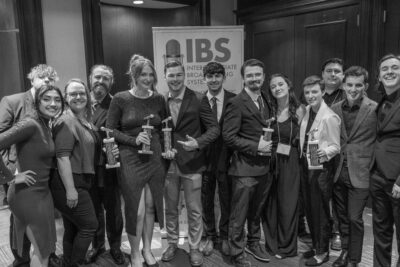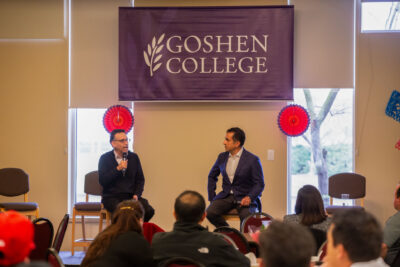Two years ago, Goshen was considering food service companies to contract out its dining facilities. One aspect that helped AVI Fresh to stand out was its record of sustainability at other colleges and universities. One manifestation of this commitment is the composting process.
Composting, or the recycling of organic matter into fertilizer, is divided into two categories. The first is pre-consumer waste that is recycled by kitchen staff. This includes all the food product that does not get served to students, parts of vegetables removed during preparation, bruised or damaged food, and flavoring agents that get removed before serving. The second category is post-consumer waste that is put in the bins near the dishwashing station. Post-consumer waste is the food scraps that people do not finish.
Without composting, all of this waste would be thrown in the garbage. Students who want to help out and have their food scraps recycled must follow the posted instructions, or the process becomes much more complicated. Bob Rombach, the Westlawn Dining Hall director says, “If we don't have students who pay attention at the separation station, the whole process is undermined.” Rombach also noted that “our prep process is one hundred percent dedicated to composting.”
AVI Fresh began composting within the first five months of operation here at Goshen. This year, that process is being expanded with new composting boxes designed by adjunct professor Lewis Naylor. These are located out by the track. They are insulated to keep the temperature up during the winter months and allow for mineral-rich water called nutrient tea to be removed and used to water flowerbeds and whatnot.
Workers from AVI Fresh visit the bins five times daily to deposit more materials and to mix the compost, which is necessary for it to break down quickly. However the school intends for this operation to be increasingly student run and operated. Volunteers will take the waste to be composted and combine it with two parts mulch to create excellent fertilizer for use on campus.
Recently Goshen was recognized by the United States Composting Council with an invitation for an involved student to speak at their conference in San Diego.
Hannah Eberly, a sophomore, said, “Composting on campus makes sense because it returns nutrients to an earth from which we are constantly taking energy. For me, this is a step towards continual sustainability and consciousness.”

